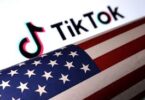Web Desk
Elon Musk, the sole owner of companies like Twitter, Tesla, and SpaceX, and many other such assets, has once come up with a disclaimer about having been born with an ’emerald spoon’ in his mouth and then raised generously to become one of the world’s most successful entrepreneurs.
Elon, the world’s second-richest person, Sunday took to Twitter to give his critics a glimpse of his financially-challenged childhood.
“I grew up in a lower, transitioning to upper, middle income situation, but did not have a happy childhood. Haven’t inherited anything ever from anyone, nor has anyone given me a large financial gift,” Elon said in a tweet responding to a user’s tweet.
The user in her tweet raised questions over Elon’s statement that he came to the US with “no money and graduated with over $100k in debt, despite scholarships & working 2 jobs while at school.”
The user wrote, “I strongly support the community notes and all this work but this time I don’t understand it! Even having a wealthy family, a student can have a lot of financial difficulties. On the other hand, the cited source is not reliable at all.”
He further wrote: “My father created a small electrical/mechanical engineering company that was successful for 20 to 30 years, but it fell on hard times.”
The billionaire added that he had been essentially bankrupt for about 25 years, requiring financial support from his brother and himself.
“That said, he does deserve credit for teaching me the fundamentals of physics, engineering and construction, which is more valuable than money, but did not support me financially after high school in any meaningful way,” he said in the same tweet.
“Our condition of providing him financial support was that he not engage in bad behaviour. Unfortunately, he nonetheless did. There are young children involved, so we continued to provide financial support for their well-being.”
Regarding the so-called “emerald mine”, he said there was no objective evidence whatsoever that this mine ever existed.
Elon said (his father) told him that he owned a share in a mine in Zambia, and “I believed him for a while, but nobody has ever seen the mine, nor are there any records of its existence”.
“If this mine was real, he would not require financial support from my brother and me,” Elon concluded his long post on it.
Elon, whose net worth is $178.2 billion, vehemently denied he had inherited any asset or money that assisted him in laying down the foundation of his business empire let alone receiving a largesse of any kind from his father.
He is ferociously fighting to preserve his status as a self-made man amid rumours and some really convincing ones that Elon Musk’s father, Errol Musk, holds and has been operating an emerald mine in South Africa and has used its proceeds to fund his son’s business ventures.
Such rumours snowballed after the senior Musk said in an interview that he used emeralds from an “under the table” mine in Zambia to finance his son’s escape from South Africa to America.
According to Business Insider South Africa (BISA), Mr Errol Musk, had a casual attitude towards the family’s considerable wealth, including the stones that came from the Zambian emerald mine in which Errol owned a half share.
“Elon Musk, by his father’s recollection then probably 16 years old, and his brother Kimbal, decided to sell emeralds to Tiffany & Co. on Fifth Avenue in New York – one of the world’s most famous jewellers – as his father lay sleeping.
“They just walked into Tiffany’s and said, ‘Do you want to buy some emeralds?’” Errol recalled in an interview with Business Insider South Africa. “And they sold two emeralds, one was for $800 and I think the other one was for $1,200.”
“A few days later the family returned to the store to find that Tiffany was selling the $800 emerald, now set in a ring, for $24,000 — a markup of 30 times the price Elon had received for the gem,” the Business Insider reported.
Errol, the publication contended, has used the story as an object lesson in how retail works ever since.
“We were very wealthy,” says Errol. “We had so much money at times we couldn’t even close our safe.”
With one person holding the money in place, another other would slam the door.






